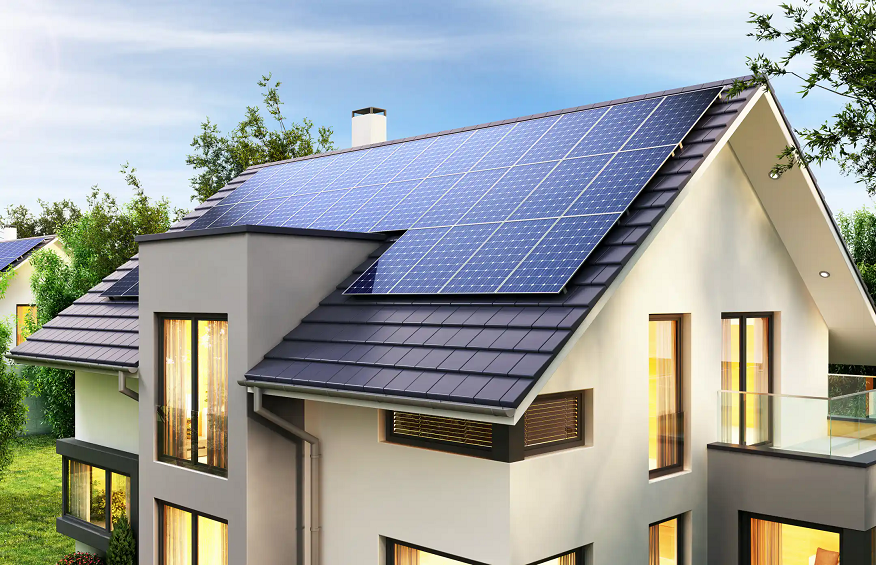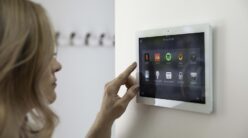With the increasing emphasis on renewable energy sources and sustainable living, many homeowners are turning to solar power as a reliable and environmentally friendly option. Installing solar panels on your roof not only allows you to harness the power of the sun but also offers a wide range of benefits that extend beyond reducing your carbon footprint. In this article, we will explore the numerous advantages of installing solar panels on your roof and how they can positively impact your energy consumption, finances, and the environment.

Cost Savings: One of the primary benefits of installing solar panels is the potential for significant cost savings. By generating your own electricity, you can reduce your reliance on the traditional power grid and save on monthly utility bills. Over time, solar panels can offset a significant portion, if not all, of your electricity costs, providing long-term financial benefits.
Energy Independence: Solar panels offer homeowners a level of energy independence. By generating your own clean energy, you are less susceptible to fluctuating electricity prices and potential power outages. With a properly sized and efficient solar panel system, you can have peace of mind knowing that your home will have a reliable source of electricity, even during emergencies or grid disruptions.
Environmental Benefits: Solar panels have a positive impact on the environment by reducing greenhouse gas emissions and dependence on fossil fuels. Solar power is a clean, renewable energy source that produces electricity without harmful emissions or pollutants. By utilizing solar energy, you contribute to the global effort to combat climate change and create a more sustainable future.
Return on Investment: Installing solar panels on your roof is an investment that can provide attractive returns. Depending on factors such as your location, energy consumption, and available incentives, you can expect to recoup your initial investment through energy savings over time. In some cases, homeowners can even earn money by selling excess electricity back to the grid through net metering or feed-in tariff programs.
Increased Property Value: Solar panels can enhance the value of your property. Many homebuyers are increasingly interested in energy-efficient homes that incorporate renewable energy solutions. Studies have shown that homes equipped with solar panels tend to sell faster and at higher prices compared to properties without solar installations. Installing solar panels is not only an investment in energy savings but also an investment in the overall value of your home.
Long-Term Durability: Solar panels are built to last. Most reputable solar manufacturers offer warranties ranging from 20 to 25 years, ensuring that your investment is protected. With proper maintenance and care, solar panels can continue to generate clean energy for decades, providing a reliable and sustainable power source for your home.
What are solar panels?
Solar panels, also known as photovoltaic (PV) panels, are devices that convert sunlight into electricity. They are made up of multiple solar cells, typically composed of silicon, which absorbs photons from sunlight and generates an electric current. These panels are designed to capture as much sunlight as possible and convert it into usable energy. Solar panels come in various sizes and configurations, and they are typically installed on rooftops or in open areas with maximum exposure to sunlight.
How do solar panels work?
Solar panels operate based on the principle of the photovoltaic effect. When sunlight hits the solar cells within the panels, the photons from the sunlight knock loose electrons from atoms in the silicon cells. These freed electrons create an electric current as they move through the material. The current is then captured and harnessed by the wiring within the solar panels. An inverter connected to the panels converts the direct current (DC) electricity generated by the panels into alternating current (AC), which is the standard form of electricity used in homes and businesses.
The pros and cons of a solar panel system:
Pros:
Cost savings: Solar panels can significantly reduce or even eliminate your monthly electricity bills, providing long-term cost savings.
Environmental benefits: Solar energy is clean and renewable, producing no greenhouse gas emissions and helping to mitigate climate change.
Energy independence: With a solar panel system, you become less reliant on the grid and have a reliable source of electricity, even during power outages.
Increased property value: Homes equipped with solar panels tend to have higher resale value and can be more attractive to potential buyers.
Cons:
High upfront cost: The initial installation cost of solar panels can be substantial, although various financing options and incentives are available to help offset this expense.
Weather-dependent: Solar panels rely on sunlight to generate electricity, so their effectiveness can be reduced during cloudy days or in areas with limited sunlight.
Space requirements: Installing solar panels may require ample roof space or open areas on your property, which might not be feasible for everyone depending on property size or restrictions.
What is battery storage?
Battery storage is a technology that allows you to store excess electricity generated by your solar panel system. Instead of sending the surplus energy back to the grid, a battery storage system captures and stores it for later use. Batteries, such as lithium-ion batteries, are commonly used for this purpose. When the sun is not shining or during times of high energy demand, you can draw from the stored energy in the battery to power your home. Battery storage provides increased self-consumption of solar energy and can help optimize energy usage, particularly during peak times or in areas with time-of-use electricity rates.
Would I benefit from Battery Storage?
The benefit of battery storage depends on various factors, such as your energy consumption patterns, local utility rates, and the availability of net metering or time-of-use billing. Battery storage is particularly beneficial if you experience frequent power outages or if you want to maximize your energy independence by relying less on the grid. Additionally, if your utility has time-of-use rates, you can store excess solar energy during off-peak hours and use it during high-demand periods, resulting in potential cost savings. Evaluating your energy needs and consulting with a solar energy professional can help determine if battery storage is a suitable option for you.
What’s the cost of a solar panel system with and without battery storage?
The cost of a solar panel system can vary depending on several factors, including the size of the system, the type of panels, installation complexity, and regional variations. On average, a typical residential solar panel system without battery storage can range from €4,000 to €12,000 or more, depending on the system size and quality. The exact cost will be influenced by factors such as your energy consumption and available incentives or rebates in your region.
Adding battery storage to a solar panel system will increase the overall cost. Battery storage systems typically range from €3,000 to €10,000 or more, depending on the capacity and brand. The cost of battery storage is influenced by factors such as battery technology, capacity, and any additional equipment required for integration. It’s important to note that while battery storage adds an upfront cost, it can provide additional benefits such as backup power during outages and increased energy independence.
The specific costs for a solar panel system with and without battery storage will vary based on individual circumstances, so it’s recommended to obtain quotes from reputable solar installation companies to get a more accurate estimate based on your specific needs and location.
Installing solar panels on your roof offers numerous benefits that go beyond just reducing your carbon footprint. From cost savings and energy independence to environmental benefits and increased property value, solar panels provide an opportunity to embrace renewable energy and take control of your energy future. By harnessing the power of the sun, you contribute to a cleaner and more sustainable world while enjoying long-term financial advantages. Embrace the benefits of solar panels and make a positive impact on your home, wallet, and the environment.
Take advantage of Marbella’s ample sunshine by utilizing solar panels to lower your air conditioning expenses. Solar energy provides an efficient way to power your home, including your AC systems, frequently generating extra electricity that can greatly decrease your energy costs. Going solar is not only eco-friendly, it’s also an astute financial decision.
In your search for the best Air Conditioning Marbella Spain has to offer, you’ve come to the right place. We supply solar-powered air conditioning units, ensuring excellent cooling performance while facilitating significant energy savings. Reach out to us today to discover this beneficial and environmentally sustainable solution. Together, let’s position Marbella at the forefront of renewable energy and sustainable living.





